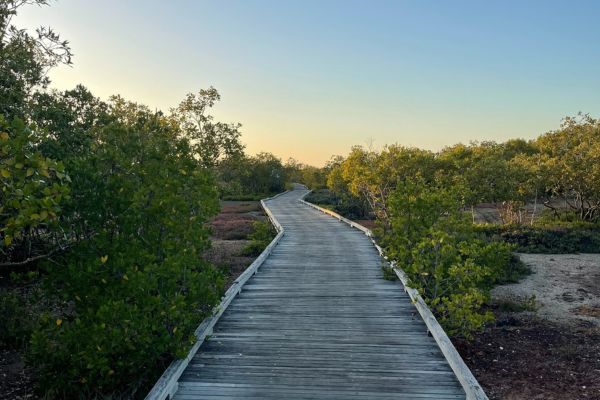Why Planning is so important in the coming years for Queensland
| Next Article |
Written by Debbie Spann and Nicole Windley, Category Managers and Partners
The old saying “If you fail to plan, you plan to fail” couldn’t be more relevant than now. With the Queensland Government's decision to host world premier events is a strategic move aimed at boosting the local economy, attracting tourism, and showcasing the region on a global stage. Creating liveable communities is at the top of the agenda for Queensland councils and when planning now for the future, there are numerous aspects to consider including parks, recreation and green space, transport infrastructure and roads, schools, and other community-based assets.
With a two-decade projection, the events are set to create a pipeline of prospects that will greatly benefit Queensland's economy. Forecasts from State Development Queensland* indicate potential economic and social gains of up to $8.1 billion.
The emphasis on creating inclusive and accessible spaces, particularly through the development of event centres, parks, recreational areas, and green spaces, goes beyond just economic advantages and has a lasting impact on communities.
Through thoughtful planning, the aim is to create liveable communities, promote healthy lifestyles and foster strong social bonds. This approach envisions a thriving community where individuals engage in physical activities, connect with one another, and enjoy the benefits of nature in an urban setting.
Planning for developments throughout Queensland involves careful consideration and expertise of various factors to ensure successful and sustainable outcomes. We’ve outlined five important tips to keep in mind when starting a development project.
1. Comprehensive Site Analysis:
Before initiating any development project, conduct a thorough site analysis. Consider factors such as topography, soil quality, existing infrastructure, and environmental features. This analysis will help you understand the limitations and opportunities of the site, enabling informed decision-making during the planning and design phases.
2. Cultural Heritage and Indigenous Engagement:
Respect and consideration for cultural heritage is essential. Identify and assess any cultural heritage sites or significance in the proposed development and surrounding areas. Engage with your local indigenous communities early in the planning process to ensure values and perspectives are addressed.
3. Flood Hazard and Resilience:
It is crucial to understand the flood hazard zones in the area. Incorporate flood mapping and data into your development plans and design with flood resilience in mind. Elevate structures, use flood resistant materials, and consider sustainable drainage solutions to mitigate potential flood risks.
4. Development Approvals and Material Change of Use:
Familiarise yourself with the local planning regulations and obtain the necessary development approvals. Ensure compliance with zoning, land use, and building codes. If your project involves material change of use (MCU), demonstrate how the proposed use aligns with the zoning and overall community vision. Clear and comprehensive documentation will expedite the approval process.
5. Community Engagement and Stakeholder Consultation:
Engage with the local community and relevant stakeholders early and often. Seek feedback and address concerns. Open communication builds trust and leads to successful and well-supported developments that reflect the needs and aspirations of the community and end users.
Collaborative and thoughtful planning ensures that the developments not only meet current needs but also contribute positively to the long-term sustainability of the liveability of the regions.
This is where Local Buy and our team of experts come into play.
Local Buy and our expert team help simplify and streamline procurement, and forms an integral part of the future planning of works through our diverse range of professional and competitive Arrangements including whole of project solutions from planning, design, architecture, survey, whole of life asset management and more.
Local Buy’s collaborative and coordinated procurement solutions across various government departments ensure that every aspect, from initial planning and design to asset management and project execution, is meticulously addressed.
By capitalising on our local strengths, embracing a comprehensive approach, and involving the entire government machinery along with entities like Local Buy, we are poised to create a legacy that will shape Queensland's future for years to come.
For more information please contact Debbie Spann or Nicole Windley

